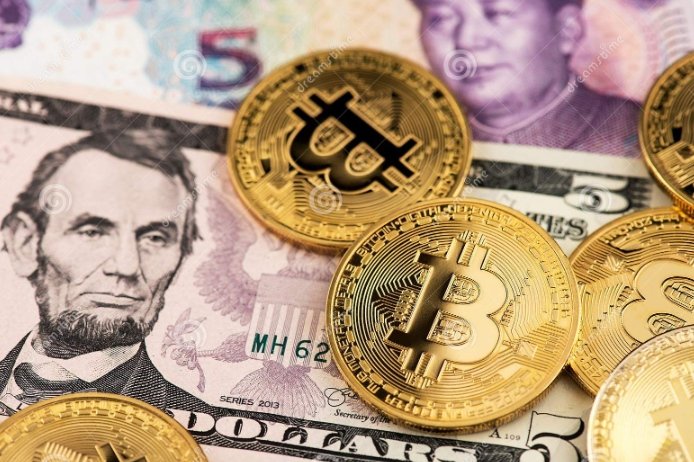A major event is happening in the global currency market: the dollar is losing strength as an exchange currency in the commodities market, opening the possibility of a new currency being adopted as the world's monetary reserve. While this is happening, the Chinese renminbi (better known as yuan) and bitcoin are on the table as two options to become the next global currency.
To understand why and how all this is happening, it is important to take a brief historical review and go back to the last century. In the early 1900s, the monetary system governing the world was very different, as it was based on gold reserves. Each country undertook to guarantee that its currency was worth a certain amount of gold that was under its safekeeping. However, with the outbreak of two world wars, the international economy underwent a violent transformation and the gold standard saw its end.
In 1944, an agreement of great importance for the financial memory of the world, the Bretton Woods, was signed. This event gave birth to the World Bank, the International Monetary Fund (IMF) and established the use of the dollar as the world's currency. The idea was that the United States would become an issuer of currency backed by its substantial gold reserve, and that this money could be used by other countries to trade goods and services.
However, the idyllic Bretton Woods system did not last long, as the 1970s saw the beginning of the financial chaos that continues to this day. The U.S. President at the time, Richard Nixon, unpegged the dollar from the gold standard during a period of inflation caused by the U.S. war in Vietnam. This led to an international financial collapse, as well as many tensions in foreign countries, where some decided to float their currencies on the open market to support the value of their economies.
This measure determined the beginning of the depreciation of the US dollar, although it continued to be the most dominant currency in the international market. Today, 90% of foreign exchange trade is conducted with the dollar, and it is still the most common reserve currency, accounting for 60% of world reserves. This percentage is much higher than that of other major currencies such as the euro, yen, renminbi and Canadian dollar.
However, recent years have seen a change in the trend, and the dollar has begun to lose its dominance in the international market. This is due to several factors, such as poor economic decisions by the United States and its growing national debt. In addition, the Chinese economy has been experiencing strong growth in recent years, which has led to the renminbi playing an increasingly important role in the international market.
The Chinese renminbi, also known as the yuan, has been a rising currency in recent years and has become one of the major reserve currencies in the world. In 2019, the yuan ranked fourth in central bank foreign currency reserves, behind the dollar, euro and yen. In addition, China has been working on making the yuan a more international currency.
As for Bitcoin, although it is still considered an emerging currency, more and more investors and businesses are adopting Bitcoin as a form of long-term investment and as a means of payment. As the use of Bitcoin becomes more common, its role in the global money market is gaining importance. However, there are still many uncertainties surrounding the cryptocurrency, such as its volatility and its regulation in different countries.
In any case, it is important to note that Bitcoin still has a long way to go before it is considered a global reserve currency. However, its continued adoption and growing acceptance as a means of payment may be indicative of its potential as an alternative currency in the future.
In conclusion, the weakening of the dollar as an exchange currency in the commodities market has opened up the possibility of a new currency being adopted as a global reserve currency. The Chinese renminbi and Bitcoin are two possible options to consider, due to their growing adoption and relevance in the global currency market. However, only time will tell who will be the next global leader in currencies and how the future of the global money market will develop.
Posted Using LeoFinance Beta

